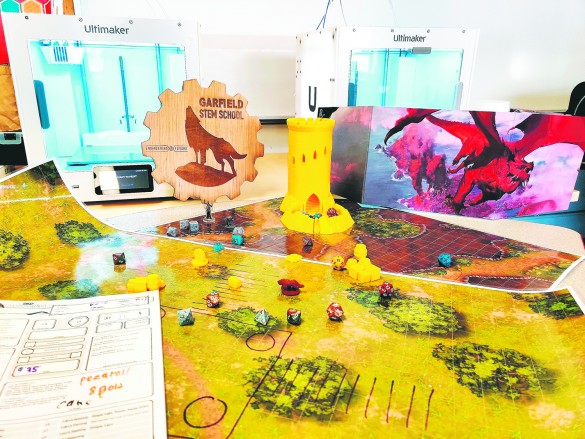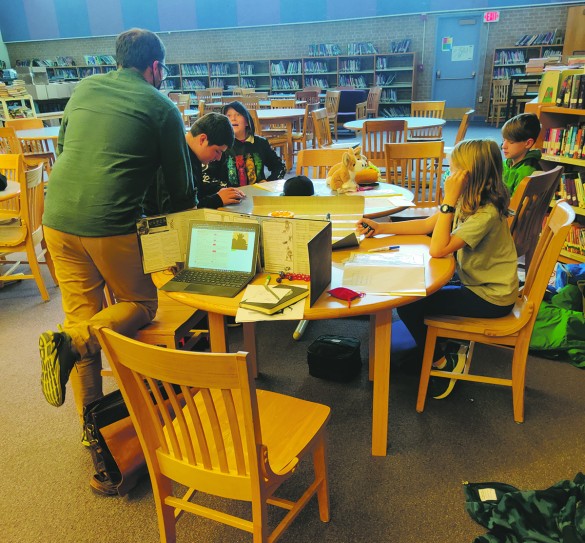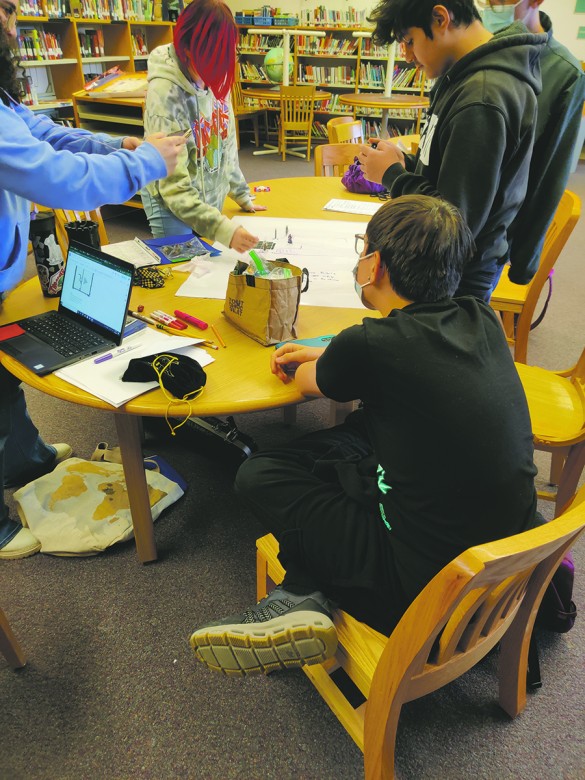Dungeons & Dragons
Popular Table Game Now Used in Kids’ Therapy
Dungeons & Dragons
April 24, 2023By WENDY KAPLAR
Since 1974, Dungeons and Dragons has captivated the hearts and minds of players worldwide with its imaginative storytelling and unique gameplay mechanics. Now, the popular table game is being used successfully in therapy.
The Treehouse counseling center in Albuquerque began its game group in 2018. “We evolved from a teenager expressing that they wanted me to start a D&D group, and we were super-successful,” said The Treehouse owner Katie Bassiri.
Parents and caregivers are seeking counseling services more frequently to assist with the effects of COVID isolation, experts say. In those instances, group therapy can be a good solution.

“Group therapy is indicated for children who are isolated, having trouble connecting with peers their age or experiencing higher levels of depression or social anxiety,” Bassiri said.
Role-playing games like D&D can enhance the process of going to therapy, making it less daunting for kids. Group therapy becomes an enjoyable, safe space to connect and foster social and emotional skills transferable to real-life situations.
“The game helps with communication and self-esteem; individuals may show off their skills and abilities,” Bassiri said. “I would add that D&D is an excellent catalyst for allowing anyone of any age, including adults, to explore their identity and surmount barriers.”
Unlike traditional board games, D&D immerses players in a world of endless possibilities, where their decisions shape the outcome of each round. At the core of this iconic game are its character classes, each with distinct abilities and strengths that players can customize to suit their preferences. With the Fighter’s brute force, the Rogue’s cunning sneakiness, the Wizard’s magical prowess, the Cleric’s divine healing, the Ranger’s combat expertise, the Paladin’s devotion to justice and the Barbarian’s fearlessness, players can create and emulate their legendary heroes and embark on epic quests. Collaborating and negotiating with each other, players must apply critical thinking to overcome obstacles and challenges, making D&D a powerful tool for group therapy.
D&D allows kids to interact freely, articulate thoughts and opinions, and start conversations without fear of rejection, judgment or ridicule. Should any awkwardness occur, it is experienced from the character’s perspective. The player does not have to continue the role once the game ends. Treehouse therapists see the game as a tool for teamwork and identity exploration.
“By engaging in D&D, players explore new worlds and characters, providing a safe vehicle for exploring gender identities and self-expression,” Bassiri said. D&D also enhances decision-making skills, so the game notably benefits individuals who struggle with impulsivity or have trouble thinking through the consequences of their actions, she said.
Lena Fahrenkrog, a teacher and dungeon master at Garfield STEM Magnet & Community School in Albuquerque, and her colleagues started a school D&D club during online learning that was instituted during COVID-19.

“Dungeons and Dragons was an activity that staff members already played and appreciated,” Fahrenkrog said. “We wanted to give the kids a means to connect in a way they were missing due to the quarantine.”
Middle-school students are at a stage in their development when social connections are crucial for their well-being. They were deeply affected by the limited social interaction during remote schooling, experts say.
Throughout the pandemic, the D&D Club at Garfield offered – and continues to provide – an affirming and structured environment for students to interact with each other and create friendships.
“The club has tripled from one initial online group to three in-person campaigns and has even acquired a 3-D printer to create its elaborate and creative game figures,” Fahrenkrog said.
D&D offers students a way to develop resilience and emotional regulation. Students who struggle with making friends may not be ready to form friendships, so characters initiate conversation, allowing a low-stakes interaction.
Creating and participating in a shared narrative in Dungeons and Dragons also teaches them to work together to create a compelling story, thereby strengthening verbal and listening skills.
“The D&D Club is important because participation strongly and positively impacts students’ soft skills,” Fahrenkrog said. “Kids can develop these skills in a low-stress and fun environment.”
And perhaps most importantly, students want to join the club, which gets them interested in and excited about school, she said.


